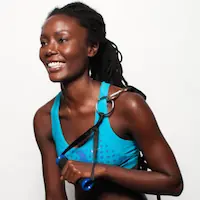
Believe it or not, the college lifestyle is not an instant sentence to gain 15 pounds. In fact, the average weight gain during the first year is only 2.7 pounds, and men are more likely to gain weight than women, according to the American Journal of College Health.
If you make healthy decisions and prepare for what's ahead, avoiding the Freshman 15 during your first year away from home is not as hard you think.
Limit Fattening Cafeteria Foods
Pizza, cinnamon rolls, French fries, doughnuts, soda and any other fatty foods that are found in a college dining hall offer nothing but energy swings and weight challenges. Try to avoid indulging in these junk foods more than once or twice per week.
Think of your plate as a grid rather than a bottomless trough to pile in food. Half of your plate should be vegetables and salad, one quarter should be a small fist-size portion of protein, and the last quarter can be, ideally, whole-grain carbs. Additionally, drink plenty of water daily.
More: How College Students Can Eat More Vegetables
Be Cautious of Alcohol
Despite the fact that most college students are under the age of 21, Freshman15.com points to alcohol as one of the top five reasons new students gain weight. When you consider calorie counts and the volume of alcohol consumed, as well as the poor food choices that are often made as a result of intoxication, it's clear to see how weight gain can happen.
Beer has 150 calories, distilled spirits (80 proof) have about 100 calories per ounce, and cocktails can have upward of 500 calories. An average 5-foot-6, 130-pound female student needs 1,650 calories daily to maintain her weight. A slightly larger male needs 2,000 calories. If you're pulling late nights, eating regularly throughout the day and drinking in excess, the pounds can pile on fast.
Don't get sucked into what some call "drunkorexia," either, where you restrict calories during the day so you can party at night. This can be dangerous for your stomach and dietary needs.


